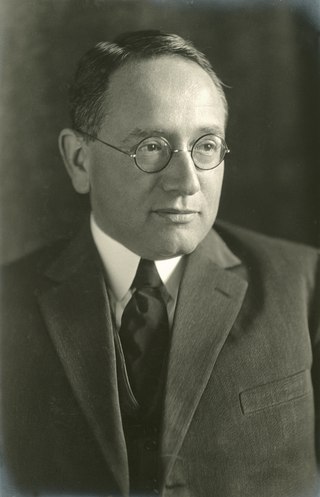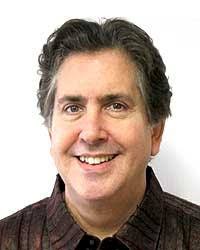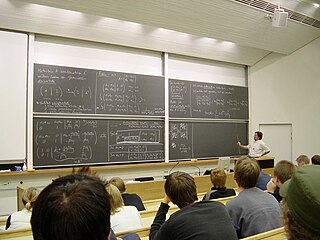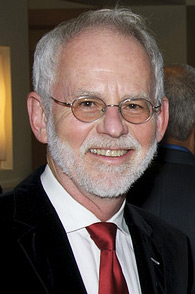Related Research Articles

Education is the transmission of knowledge,skills,and character traits and comes in many forms. Formal education happens in a complex institutional framework,like public schools. Non-formal education is also structured but takes place outside the formal schooling system,while informal education is unstructured learning through daily experiences. Formal and non-formal education are divided into levels that include early childhood education,primary education,secondary education,and tertiary education. Other classifications focus on the teaching method,like teacher-centered and student-centered education,and on the subject,like science education,language education,and physical education. The term "education" can also refer to the mental states and qualities of educated people and the academic field studying educational phenomena.

George Pólya was a Hungarian American mathematician. He was a professor of mathematics from 1914 to 1940 at ETH Zürich and from 1940 to 1953 at Stanford University. He made fundamental contributions to combinatorics,number theory,numerical analysis and probability theory. He is also noted for his work in heuristics and mathematics education. He has been described as one of The Martians,an informal category which included one of his most famous students at ETH Zurich,John von Neumann.
A heuristic,or heuristic technique,is any approach to problem solving or self-discovery that employs a practical method that is not guaranteed to be optimal,perfect,or rational,but is nevertheless sufficient for reaching an immediate,short-term goal or approximation. Where finding an optimal solution is impossible or impractical,heuristic methods can be used to speed up the process of finding a satisfactory solution. Heuristics can be mental shortcuts that ease the cognitive load of making a decision.

Douglas Bruce Lenat was an American computer scientist and researcher in artificial intelligence who was the founder and CEO of Cycorp,Inc. in Austin,Texas.
Media literacy is an expanded conceptualization of literacy that includes the ability to access and analyze media messages as well as create,reflect and take action,using the power of information and communication to make a difference in the world. Media literacy is not restricted to one medium and is understood as a set of competencies that are essential for work,life,and citizenship. Media literacy education is the process used to advance media literacy competencies,and it is intended to promote awareness of media influence and create an active stance towards both consuming and creating media. Media literacy education is part of the curriculum in the United States and some European Union countries,and an interdisciplinary global community of media scholars and educators engages in knowledge and scholarly and professional journals and national membership associations.
Critical thinking is the analysis of available facts,evidence,observations,and arguments in order to form a judgement by the application of rational,skeptical,and unbiased analyses and evaluation. The application of critical thinking includes self-directed,self-disciplined,self-monitored,and self-corrective habits of the mind,thus a critical thinker is a person who practices the skills of critical thinking or has been trained and educated in its disciplines. Richard W. Paul said that the mind of a critical thinker engages the person's intellectual abilities and personality traits. Critical thinking presupposes assent to rigorous standards of excellence and mindful command of their use in effective communication and problem solving,and a commitment to overcome egocentrism and sociocentrism.

In contemporary education,mathematics education—known in Europe as the didactics or pedagogy of mathematics—is the practice of teaching,learning,and carrying out scholarly research into the transfer of mathematical knowledge.
Historical thinking is a set of critical literacy skills for evaluating and analyzing primary source documents to construct a meaningful account of the past. A large-scale experiment in San Francisco high schools compared traditional textbook-driven instruction to instruction focusing on the analysis of primary source documents. After six months,students in experimental classrooms improved in historical thinking as well as reading comprehension compared to students in regular classrooms.
Design thinking refers to the set of cognitive,strategic and practical procedures used by designers in the process of designing,and to the body of knowledge that has been developed about how people reason when engaging with design problems.

Roy D. Pea is David Jacks Professor of Learning Sciences and Education at the Stanford Graduate School of Education. He has extensively published works in the field of the Learning Sciences and on learning technology design and made significant contributions since 1981 to the understanding of how people learn with technology.
Stephen Brookfield is a scholar in adult education who has held positions at the University of British Columbia,Columbia University,Harvard University and the University of Saint Thomas. He is currently Distinguished Scholar at Antioch University,Adjunct Professor at Columbia University,and Emeritus Professor at the University of St. Thomas.
Great Hearts Academies is a non-profit charter school management organization that operates a network of elementary,middle,and high schools in the Phoenix,Arizona Metropolitan area and in San Antonio,Ft. Worth,and Irving,Texas. In fall 2023,Great Hearts will open a new academy in East Baton Rouge,Louisiana. Great Hearts will open a new academy in Jacksonville,Florida in fall 2024.
Teachinghistory.org,also known as the National History Education Clearinghouse (NHEC),is a website that provides educational resources for the study of U.S. history.

Smarthistory is a free resource for the study of art history created by art historians Beth Harris and Steven Zucker. Smarthistory is an independent not-for-profit organization and the official partner of the Khan Academy for art history. It is funded by the National Endowment for the Humanities.

The Institute for the Study of Knowledge Management in Education (ISKME),is a 501(c)(3) non-profit organization founded in 2002. Located in Half Moon Bay,California,its mission is to make learning and knowledge sharing participatory,equitable,and open.
Decisions,Decisions is a 15-part educational role-playing video game series by Tom Snyder Productions,released from the 1980s to the early 2000s. It has also been described as a "media-assisted simulation game" series.
The CRAAP test is a test to check the objective reliability of information sources across academic disciplines. CRAAP is an acronym for Currency,Relevance,Authority,Accuracy,and Purpose. Due to a vast number of sources existing online,it can be difficult to tell whether these sources are trustworthy to use as tools for research. The CRAAP test aims to make it easier for educators and students to determine if their sources can be trusted. By employing the test while evaluating sources,a researcher can reduce the likelihood of using unreliable information. The CRAAP test,developed by Sarah Blakeslee and her team of librarians at California State University,Chico,is used mainly by higher education librarians at universities. It is one of various approaches to source criticism.

Throughout the history of the United States,various topics have been censored and banned in education,including teaching about evolution,racism,sexism,sex education,and LGBTQ+ topics. Due to the federal system of the country being highly decentralized,states are delegated with much of the responsibility for administering public education,and it is often governments of the red states that have enacted such policies.

The Annenberg Institute for School Reform at Brown University is an education research and reform institute at Brown University. Its mission is to "understand the causes and consequences of educational inequality and to reduce this inequality through innovative,multidimensional,and research-informed approaches." The institute was established in October 1993 as the National Institute for School Reform and renamed the Annenberg Institute for School Reform in December 1993 following a gift from the Annenberg Foundation.
Shuchi Grover is an American learning scientist and computer science education researcher. Her research investigates computational thinking and how to design effective educational courses for children.
References
- 1 2 Onion, Rebecca (2018-09-18). "Amid the Online Glut of Facts and Fake News, We're Teaching History Wrong". Slate Magazine. Retrieved 2022-02-24.
- ↑ Berg, Christopher W.; Christou, Theodore M. (2020-04-03). The Palgrave Handbook of History and Social Studies Education. Springer Nature. p. 548. ISBN 978-3-030-37210-1.
- ↑ Arum, Richard; Roksa, Josipa; Cook, Amanda (2016-05-02). Improving Quality in American Higher Education: Learning Outcomes and Assessments for the 21st Century. John Wiley & Sons. ISBN 978-1-119-26851-2.
- 1 2 3 Metzger, Scott Alan; Harris, Lauren McArthur (2018-03-02). The Wiley International Handbook of History Teaching and Learning. John Wiley & Sons. p. 132. ISBN 978-1-119-10077-5.
- ↑ Hess, Rick (2021-04-08). "The Stanford Scholar Bent on Helping Digital Readers Spot Fake News". Education Week. ISSN 0277-4232 . Retrieved 2022-02-28.
- 1 2 3 Miller, Robert Nagler (2018-09-13). "Q&A: How do we learn in a time of competing realities?". J. Retrieved 2022-02-24.
- ↑ "Sam Wineburg". The Conversation. 2019-01-07. Retrieved 2024-01-24.
- ↑ Hess, Rick (2021-04-08). "The Stanford Scholar Bent on Helping Digital Readers Spot Fake News". Education Week. ISSN 0277-4232 . Retrieved 2022-02-24.
- ↑ Downey, Matthew T.; Long, Kelly A. (2015-07-30). Teaching for Historical Literacy: Building Knowledge in the History Classroom. Routledge. p. 131. ISBN 978-1-317-50902-8.
- ↑ University, Stanford (2020-10-07). "Judging fact from fiction online". Stanford News. Retrieved 2022-02-24.
- ↑ "Sam Wineburg". National Academy of Education. Retrieved 2022-02-24.
- ↑ Warner, John (October 28, 2023). "Biblioracle: If you've ever been lied to or misinformed online, try this book". The Chicago Tribune (Book Review).